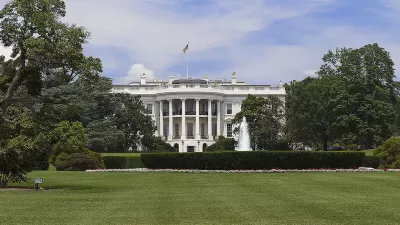New political leadership in Cincinnati is centering housing equity in a proposal that would ease zoning restrictions and streamline Low Income Housing Tax Credits, among other measures.

New Cincinnati Mayor Aftab Pureval announced this week a package of housing reforms that could potentially put a major dent in the city's supply of single-family zones.
Allison Babke summarizes the package as follows in an article for CityBeat:
Pureval said that he will introduce a motion to Cincinnati City Council to conduct a comprehensive housing incentive and zoning review. The motion also would engage residents and remove housing barriers, Pureval said. The review and legislation that follows will guide Cincinnati's future growth and boost mixed-income affordable housing instead of concentrating incentives in neighborhoods that already are wealthy, he added.
According to Babke, Reggie Harris, council member and chair of the equitable growth and housing committee, is already working on a proposal to "update zoning laws that currently deem certain multi-family units illegal."
Both Mayor Puerval and Councilmember Harris are quoted in the article iterating the importance of equity in guiding housing reforms, increasing housing options and affordability in Cincinnati neighborhoods that historically have been left out of redevelopment investments.
A separate article by Becca Costello for WVXU headlines a different component of the proposal: tax abatements to developers applying for federal Low-Income Housing Tax Credits (LIHTC). Councilmember Harris, again, is writing an ordinance that would streamline the LIHTC application process.
Additional news coverage of Cincinnati's new housing reform agenda is available in articles for WCPO and Spectrum News 1.
FULL STORY: Cincinnati Announces New Equitable Housing Policy Reforms

Maui's Vacation Rental Debate Turns Ugly
Verbal attacks, misinformation campaigns and fistfights plague a high-stakes debate to convert thousands of vacation rentals into long-term housing.

Planetizen Federal Action Tracker
A weekly monitor of how Trump’s orders and actions are impacting planners and planning in America.

In Urban Planning, AI Prompting Could be the New Design Thinking
Creativity has long been key to great urban design. What if we see AI as our new creative partner?

Massachusetts Budget Helps Close MBTA Budget Gap
The budget signed by Gov. Maura Healey includes $470 million in MBTA funding for the next fiscal year.

Milwaukee Launches Vision Zero Plan
Seven years after the city signed its Complete Streets Policy, the city is doubling down on its efforts to eliminate traffic deaths.

Portland Raises Parking Fees to Pay for Street Maintenance
The city is struggling to bridge a massive budget gap at the Bureau of Transportation, which largely depleted its reserves during the Civd-19 pandemic.
Urban Design for Planners 1: Software Tools
This six-course series explores essential urban design concepts using open source software and equips planners with the tools they need to participate fully in the urban design process.
Planning for Universal Design
Learn the tools for implementing Universal Design in planning regulations.
Gallatin County Department of Planning & Community Development
Heyer Gruel & Associates PA
JM Goldson LLC
City of Camden Redevelopment Agency
City of Astoria
Transportation Research & Education Center (TREC) at Portland State University
Jefferson Parish Government
Camden Redevelopment Agency
City of Claremont





























